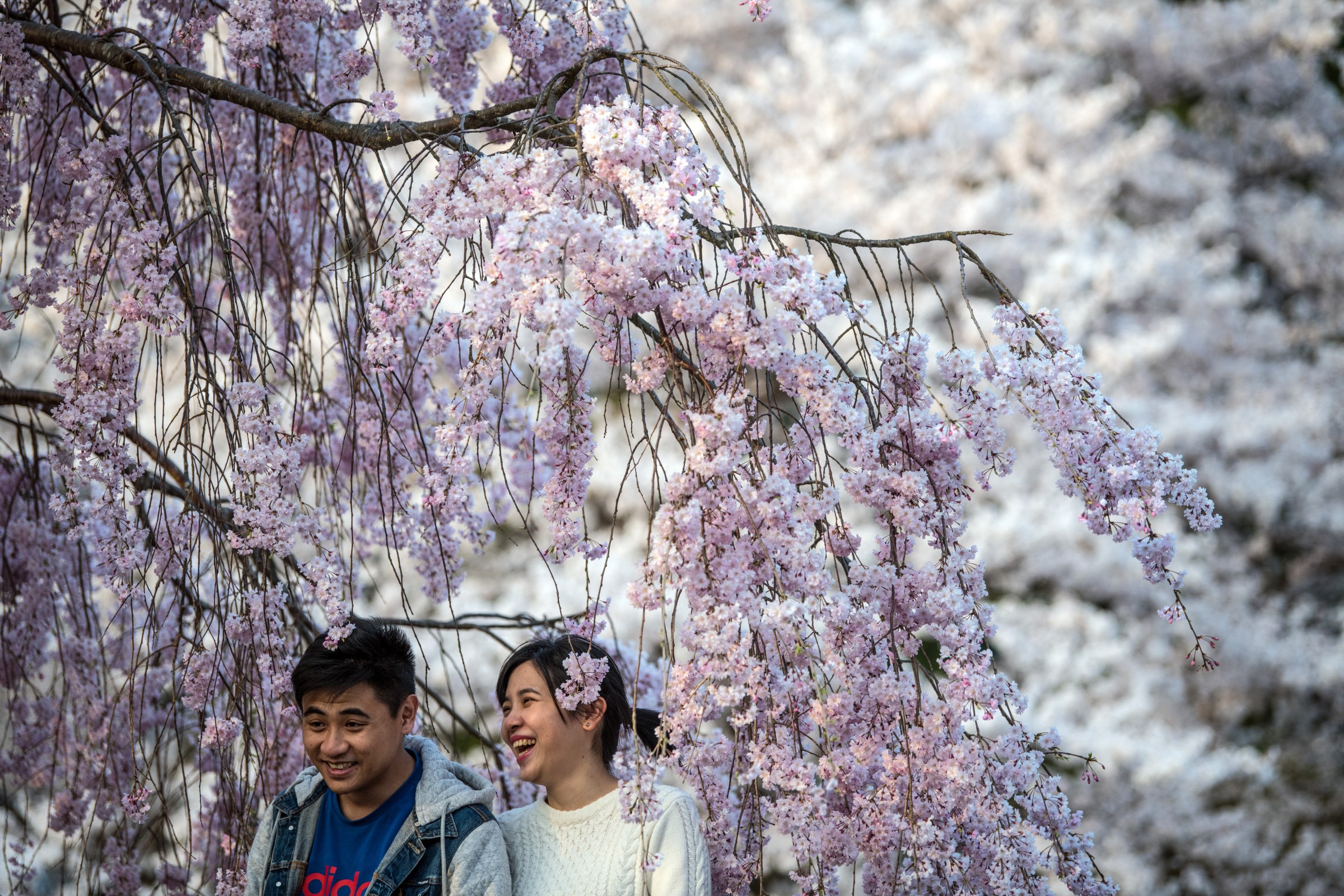
Japan’s famous cherry blossoms might be associated with springtime and renewal, but this year, the flowers are making a rare second appearance in October after an unusually strong typhoon season, weather forecasters said.
More than 300 people in Japan have reported observing the iconic pink and white cherry blossoms in recent weeks, Agence France-Presse reports.
Tree expert Hiroyuki Wada attributed the unseasonable blooming to the recent typhoon season, which saw high winds whip off tree leaves. These leaves usually release a chemical that prevents blooming until spring, Wada told Japanese national broadcaster NHK. The warmer post-typhoon temperatures along with the absence of hormones to inhibit blooming could have triggered the atypical flowers.
“This has happened in the past, but I don’t remember seeing something of this scale,” he told NHK.
Japan has endured numerous storms and severe weather events this year. Typhoon Jebi battered the country’s western coast last month, killing 11 people and injuring hundreds. The storm followed a deadly heatwave over the summer that claimed 80 lives, while flooding and landslides in July killed more than 200 people.
Read more: Cherry Blossoms in Full Bloom in Japan: Sakura Photos
Japan’s annual cherry blossom season is serious business. The blossoms only last about a week, usually in March or April. Tourists rush to picnic and take photos under the fleeting flowers.
The timing of the annual flowering has also been documented for centuries in Japan. But scientists both in Japan and in Washington, D.C. have noticed that date creeping earlier in the calendar, as climate change causes early warming. This year, Japan’s season is forecast to begin on March 17, four days ahead of last year.
This month’s unseasonable bloom could slightly detract from next spring’s season, as buds that open now won’t flower again next year, according to Wada. “But only a small number [of flowers] are being observed. I don’t think it will affect cherry blossom viewing [next year],” he told NHK.
More Must-Reads From TIME
- The 100 Most Influential People of 2024
- The Revolution of Yulia Navalnaya
- 6 Compliments That Land Every Time
- What's the Deal With the Bitcoin Halving?
- If You're Dating Right Now , You're Brave: Column
- The AI That Could Heal a Divided Internet
- Fallout Is a Brilliant Model for the Future of Video Game Adaptations
- Want Weekly Recs on What to Watch, Read, and More? Sign Up for Worth Your Time
Write to Eli Meixler at eli.meixler@time.com